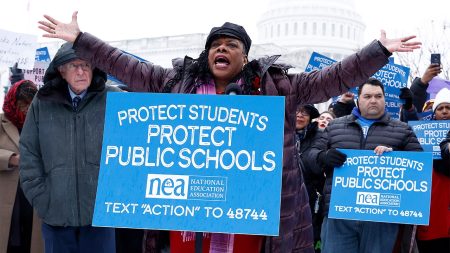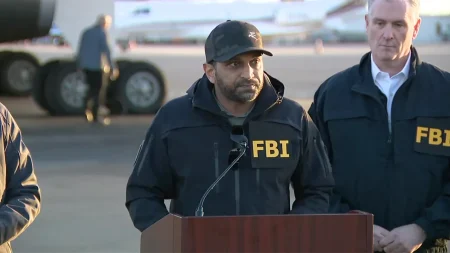US Ambassador Huckabee Heads to Cairo Amid Rising Middle East Tensions
Diplomatic Mission Focuses on Gaza Conflict and Strained Israel-Egypt Relations
In a significant diplomatic development, Ambassador Mike Huckabee is set to travel to Cairo for high-level discussions primarily centered on the ongoing Gaza conflict and the increasingly complex relationship between Israel and Egypt. This visit comes at a critical juncture in Middle Eastern politics, as regional stakeholders navigate the challenging landscape of escalating tensions and humanitarian concerns stemming from the protracted Gaza war.
The trip, confirmed by State Department officials speaking on condition of anonymity, represents Washington’s continued efforts to maintain its diplomatic presence in a region experiencing significant geopolitical shifts. Huckabee’s mission underscores the Biden administration’s commitment to fostering dialogue among key allies at a time when traditional partnerships face unprecedented strain. “The Ambassador’s visit is part of our ongoing diplomatic engagement in the region,” noted a senior State Department official. “These discussions are crucial for understanding the evolving dynamics and identifying potential paths toward de-escalation and eventual resolution of the conflict.”
Historical Context of Egypt’s Role as Regional Mediator
Egypt has historically played a pivotal role in Middle Eastern diplomacy, particularly regarding Israeli-Palestinian relations. Since the 1979 Egypt-Israel Peace Treaty, Cairo has often served as a crucial intermediary between Israeli officials and various Palestinian factions, including those in Gaza. This unique position has made Egypt an indispensable partner in previous ceasefire negotiations, humanitarian aid coordination, and broader peace initiatives throughout the region. The country’s geographical proximity to Gaza, combined with its diplomatic relationships with both Israeli and Palestinian leadership, has established Egypt as a key broker in moments of heightened conflict.
However, the prolonged Gaza war has placed significant pressure on this traditional mediating role. Egyptian President Abdel Fattah el-Sisi’s government has faced mounting domestic criticism regarding its approach to the conflict, particularly concerning the humanitarian situation in Gaza and border security concerns. “Egypt finds itself in an increasingly difficult balancing act,” explains Dr. Sarah Mahmoud, professor of Middle Eastern Studies at Georgetown University. “They must maintain their strategic relationship with Israel and the United States while responding to strong public sentiment supporting Palestinian rights and humanitarian concerns. This has created unprecedented tension in what was once considered a stable diplomatic relationship.”
Current Challenges in Israel-Egypt Relations
The once-reliable peace between Israel and Egypt has shown signs of strain in recent months, marking one of the most significant diplomatic challenges in decades. Several factors have contributed to this deterioration, including disagreements over border security measures, the management of humanitarian aid to Gaza, and fundamental differences in approach to long-term regional stability. Israeli security concerns regarding the Gaza-Egypt border have led to military operations that Egyptian officials have sometimes characterized as encroachments on their sovereignty, creating diplomatic friction between the two nations.
Economic factors have further complicated the relationship. The conflict has disrupted trade routes and tourism, affecting the economies of both countries at a time when they face internal economic challenges. Energy cooperation, once a bright spot in bilateral relations, has also faced setbacks as security concerns have occasionally interrupted joint ventures. Military cooperation, while still officially intact, has experienced practical limitations as the two nations’ strategic priorities have diverged during the conflict. Ambassador Huckabee’s visit comes amid reports that communication channels between Cairo and Jerusalem have become less effective, with some diplomatic exchanges reportedly taking place through American intermediaries rather than through direct contact.
Humanitarian Crisis and Regional Security Implications
The humanitarian situation in Gaza remains a central concern for all parties involved in the discussions. With infrastructure severely damaged, medical supplies limited, and food security increasingly precarious, addressing the immediate needs of Gaza’s civilian population has become an urgent priority. Egypt’s role in facilitating humanitarian aid through the Rafah crossing has been crucial but complicated by security concerns and logistical challenges. “The humanitarian dimension cannot be separated from the security discussions,” notes former UN humanitarian coordinator James Hartley. “Any sustainable approach to regional stability must address the immediate suffering of civilians caught in this conflict.”
Beyond the immediate Gaza crisis, the discussions in Cairo will likely address broader regional security concerns, including the potential for conflict spillover into neighboring territories. The situation has already contributed to increased tensions along Israel’s northern border with Lebanon, where exchanges of fire between Israeli forces and Hezbollah have intensified. Maritime security in the Red Sea has also emerged as a concern, with implications for global shipping routes and energy supplies. Egyptian officials have expressed particular concern about potential refugee flows and the movement of militant groups that could destabilize the Sinai Peninsula, an area where Egypt has fought a protracted counter-terrorism campaign.
Diplomatic Objectives and Future Outlook
Ambassador Huckabee’s mission represents part of a broader diplomatic initiative that includes engagement with multiple regional partners. While in Cairo, he is expected to meet with senior Egyptian officials, including Foreign Minister Sameh Shoukry and intelligence chief Abbas Kamel, both key figures in Egypt’s foreign policy apparatus. These discussions will likely focus on practical steps to reduce tensions, improve humanitarian access to Gaza, and potentially lay groundwork for more comprehensive peace talks involving Palestinian representatives.
The long-term implications of these discussions extend beyond the immediate crisis. Analysts suggest that the outcome of Huckabee’s Cairo visit could influence the trajectory of U.S. policy in the region for months to come. “What we’re seeing is a diplomatic effort to prevent further deterioration in relationships that form the foundation of Middle Eastern stability,” explains Dr. Robert Anderson, senior fellow at the Center for Strategic and International Studies. “The challenge lies in finding solutions that address both immediate security concerns and long-standing grievances that fuel conflict in the region.” As Ambassador Huckabee embarks on this critical diplomatic mission, the international community watches closely, recognizing that the path to sustainable peace requires both immediate crisis management and a vision for long-term regional stability that acknowledges the legitimate security concerns and aspirations of all parties involved.










